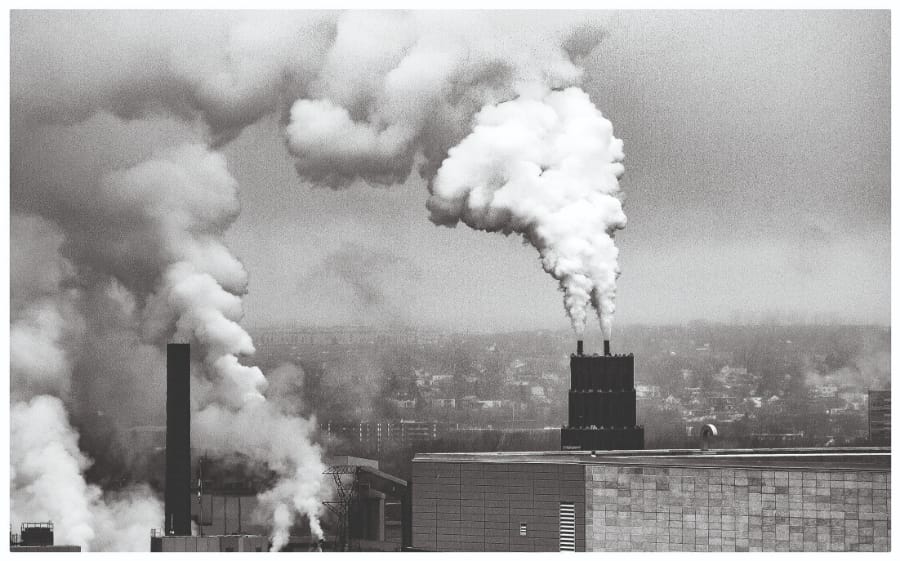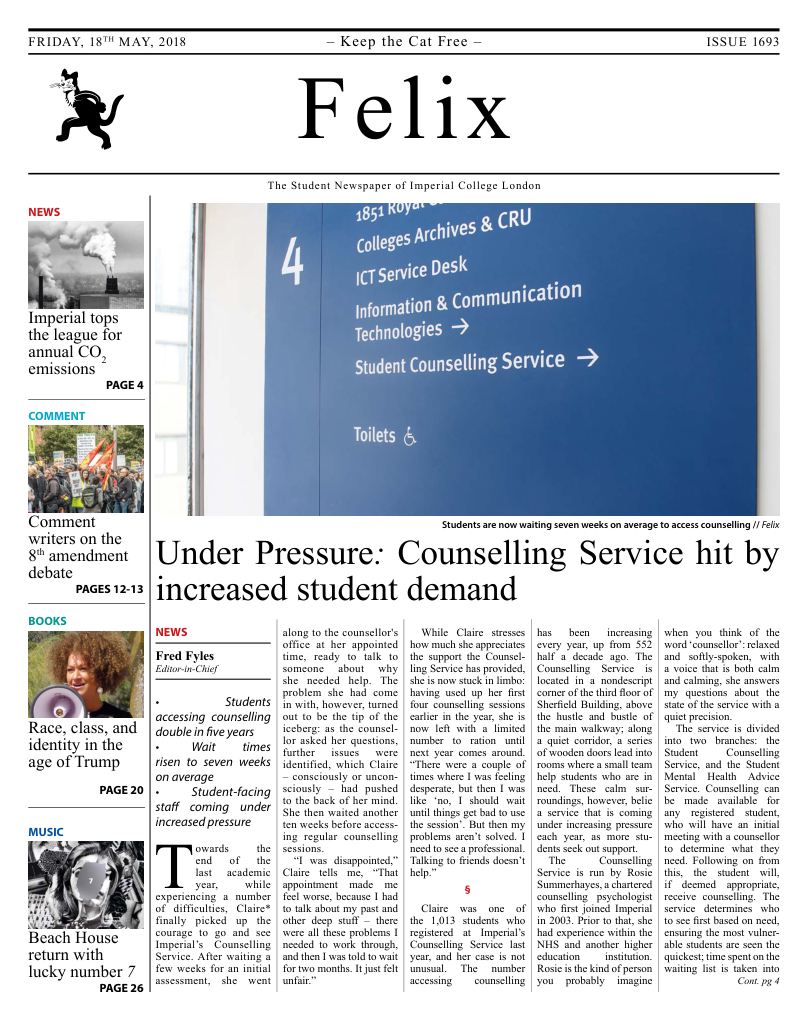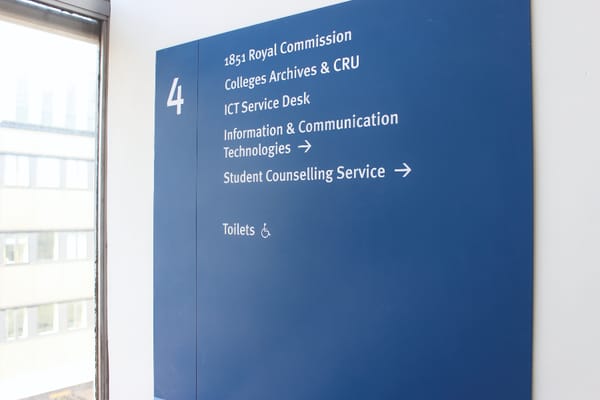Imperial emitted more CO2 than any other university in the UK last year
Imperial is one of the worst-performing institutions for energy consumption, waste, and emissions.

The level of carbon dioxide emitted by Imperial is higher than that of any other higher education provider in the UK. The College is also one of the worst-perfroming institutions for energy consumption and wastewater.
Imperial was responsible for almost 75.8 million kg of CO2 released in 2016/17, data from the Higher Education Statistics Agency (HESA) shows. This figure includes emissions from the College’s direct fossil fuel use (such as heating and the shuttle bus service) in addition to the CO2 released in the production of electricity, which the College then uses.
Imperial consumed nearly 236 million kWh of energy, making it the third largest consumer among UK universities. This is an improvement on 2015/16 when Imperial’s consumption of almost 260 million kWh topped the list of worst offenders. In its latest sustainability report, the College claims its energy consumption in 2016/17 was “particularly high” because of maintenance work which left the South Kensington combined heat and power plant “out of commission” from August 2015 to February 2017.
Imperial’s production of more than 60.5 million kg of waste mass also puts it in the bottom three nationally. The manners in which this waste was disposed of are unknown but College figures claim only healthcare waste – representing 11% of Imperial’s total waste – was sent to landfill in 2016.
“Imperial's production of more than 60.5 million kg of waste mass puts it in the bottom three nationally”
More than 700,000 kg of CO2 can be added to Imperial’s carbon footprint when indirect emissions are considered. The HESA data only accounts for such emissions produced by waste, and the supply and treatment of water. Imperial is among the high producers for supply and treatment of water, releasing almost 232,000 kg of CO2 through water supply and more than 477,000 kg through water treatment. Imperial is also the sixth worst institution in terms of production of wastewater – the College produced almost 674 million litres of wastewater in 2016/17 – though again this is an improvement on the previous year’s more than 700 million litres wastewater.
There are many other sources of indirect emissions, such as greenhouse gases released during student and staff commutes. As with many other companies, the total value of Imperial’s indirect emissions is likely to be much larger than the amount of greenhouse gases it produces directly.
Imperial College Union's Ethics and Environment Officer Rhidian Thomas told Felix: “This is yet another disappointing performance from Imperial in terms of sustainability, in a year that's seen plenty. The College must show it takes environmental concerns seriously if it hopes for students to do the same.”
An Imperial College spokesperson said: “Imperial carries out world-leading research in energy, the environment and climate change. We recognise our operations and activities have an impact on the environment and we have a responsibility to mitigate this.”
"The results were called 'yet another disappointing performance from Imperial, in a year that's seen plenty'”
These figures could prove embarrassing in the wake of the recently published Greening Imperial report. The paper found Imperial is “failing in terms of sustainability compared to its peers” and listed a number of measures to improve the College’s environmental impact, ensuring sustainability is “comprehensively incorporated into estates management”.
98% of students and staff surveyed as part of the Greening Imperial survey thought Imperial should be doing more for sustainability and climate change, while 91% were dissatisfied with Imperial’s standings compared to other universities.
Professor Geoff Maitland, Professor of Energy Engineering at Imperial, and Greening Imperial co-author, told Felix the report was a “call to action to raise Imperial’s aspirations and achievements in creating a sustainable, low-carbon structure for itself and the world.”
Imperial has performed poorly in analyses of universities’ environmental credentials over recent years: in 2017 People & Planet ranked Imperial 141st out of 154 HE providers and the worst of the Russell Group universities. A Felix investigation earlier this year also revealed Imperial has invested almost £9 million in the fossil fuel industry.
The Russell Group university with the lowest scope 1 and 2 carbon emissions was the London School of Economics (LSE), whose emissions were around 13% of those of Imperial.









